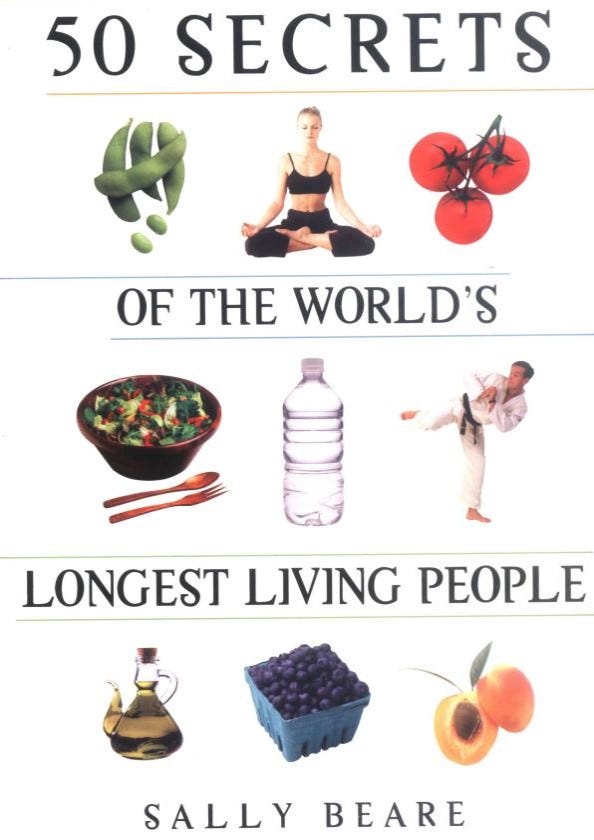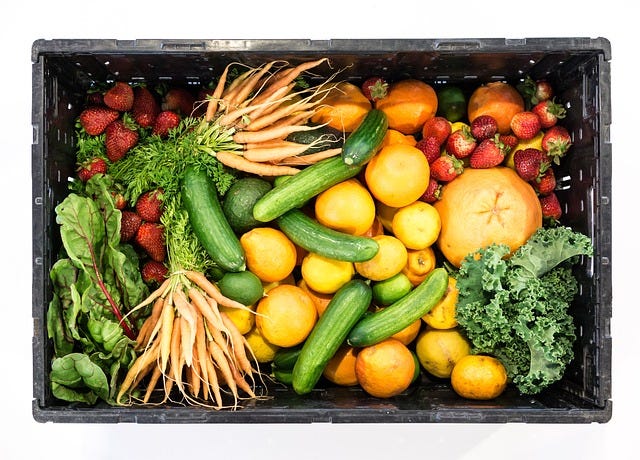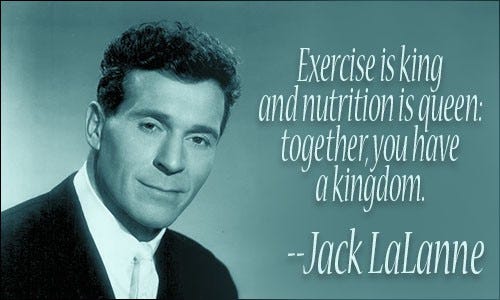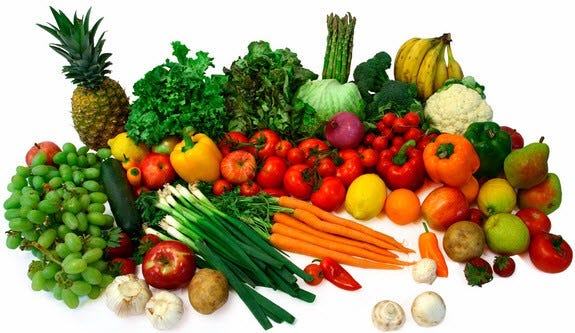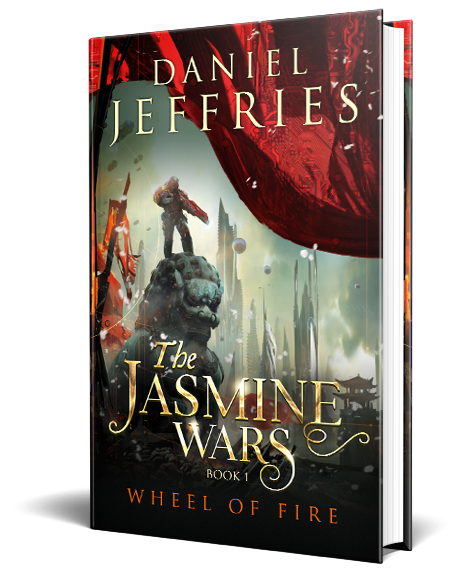Hacking Your Health: A Common Sense Approach to Living to 100
When I decided to lose weight, I was fed up.
When I decided to lose weight, I was fed up.
As a computer consultant, I’d spent way too many nights in the data center, living on energy drinks, snacks from the machine, pizza and burgers. Then one day I woke up and said that’s enough. I feel like crap and I look like crap. Time to fix this.
So I started reading everything I could about eating well. After looking at everything from paleo to vegetarianism and everything in between, I found a series of metapatterns that exist in all diets.
I know what you’re thinking. Paleo and vegetarianism agree on anything? Surprisingly they do. There are universal patterns to good eating.
I call it the common sense diet.
Maybe you’re like me and you decided to make a change? Good for you. Now you just have to figure out what to eat and that’s when the problems start.
Unfortunately, there is a lot of bad advice out there. If you’re not careful you’ll wind up no better off then when you started. Should we eat meat or is it bad for us? How about red meat? What about wheat? Are potatoes good for me?
Pretty soon you are so far down the rabbit hole, reading competing philosophies that you’ll end up more confused then ever. So let’s see if we cut through the FUD and get closer to the truth.
The question is, with so much conflicting advice, how can know what’s real?
My litmus test is simple:
Who in the world is actually living the longest? What do they eat?
I am not interested in theory, only fact.
My favorite book on this subject is 50 Secrets of the World’s Longest Living People which highlights five hot pockets of longevity: Okinawa, Japan; Bama, China; Campodimele, Italy; Symi, Greece; and Hunza, Pakistan.
You can read the book to get all the great tips but here is the gist. Basically, they eat a variety of foods, but vegetables are the foundation, as is regular aerobic exercise, which is woven into their daily activity.
Here’s what I noticed about how all of these folks eat:
They understand proportions and balance.
Okinawans love their pork, but they don’t eat it every day. The Grecian’s love their olive oil but they use it on salad, not to deep fry crap every day.
Eat when you’re hungry and go until you are “eight parts full” as the Okinawans say. In other words don’t eat until you are completely full, eat until you are just about full.
As my father always said, balance is best in all things. They eat a lot of vegetables and a little meat or fish, not a lot of meat and little to no vegetables. Balance. Proportions.
They also don’t fall prey to one of the most common diet fallacies.
I call it the “one food villain” diet.
One Food Villain Diets
You can almost hear the maniacal, cackling laughter, can’t you?
Almost every single diet out on the best seller list seems to focus on a single category of food, whether that is meat, or sugar, or starch. Fat is evil! Carbs are the devil! No, no, it’s sugar that kills you!
You know why?
Because it’s easier to market and easier to remember.
But is it really better for you? Can you cut out all sugar and lose a bunch of weight? Probably, but who wants to?
The real question you need to ask yourself is whether a diet is sustainable?
Can you hold to it for ten, twenty or thirty years? I don’t know about you, but I am not spending the rest of my life never eating ice cream again.
So how do we make a diet sustainable? (HINT: It’s not paying for some meal kit for thirty years.)
Here’s the key:
Make Longevity Your Goal, Not Weight Loss
Weight loss is just a happy side effect of longevity. When you eat correctly you will lose weight and you will not gain it back. The problem with focusing on weight loss is that it has an end state. It has a finish line. Once you get there, you start back sliding because you’ve reached your goal.
Longevity has no end state until you reach the big sleep. So concentrate on living to 100.
I utilized the above principles and brought my weight down from 215 to 176, my high school weight. I dropped from a 38 to a 34 waist. My blood pressure went from borderline hypertension to normal.
Yours can too.
How long did that take? About four months. Not long at all.
Start Where You’re At
If you’re overweight with high blood pressure and a wheezing cough, understand that you aren’t going to undo these things overnight. Some of them will change quickly, some not so much. You can drop 40 or 50 pounds in three or four months. The other bits might take a little longer.
Just remember that Rome was not built in a day. You took a long time to screw your body up. Take the time to fix it.
Each choice adds up. Make good choices every day and your body will get stronger and stronger. Every choice is connected to the last like beads on a string.
Concentrate on nutrient rich foods; don’t worry about calories. Worry about empty calories, like a 400-calorie coffee from Starbucks. When you eat, make the food count.
Metapatterns Across All Diets
There is a lot of overlap across diets. Paleo and vegetarianism absolutely don’t agree on whether you should eat meat, but both agree that vegetables are good for you.
In fact, there are no diets that say vegetables are bad for you.
So after reading dozens of books, I deduced the basic patterns of healthy eating as the following:
Eat:
Fish
Some meat
Eggs
Vegetables
Fruits
Nuts
Limit/Avoid/Control:
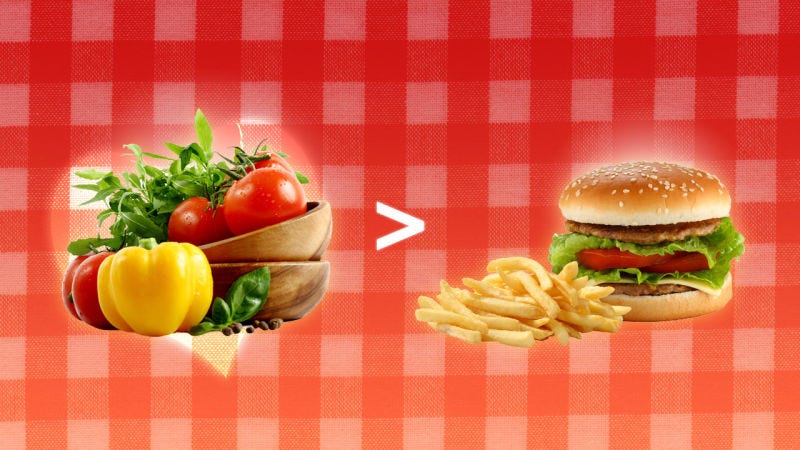
Too much red meat, sugary and starchy foods, as well as grains (pasta, breads, rice, potatoes)
When you do eat starchy food avoid the white versions of them and choose yams, purple potatoes, brown or black rice
Berries are you best choice when eating fruits, followed by apples and bananas
If you eat meat, eat red meat once in awhile but not all the time
Dried fruits are fine in moderation but know that drying them concentrates their sugar so eat less
If you’re going to eat grains choose 100% whole wheat or ancient grain varieties (like sorghum [which has some special anti-inflammatory properties and also limits how fast it converts to sugar in your blood], kamut, quinoa, or farro) but under no circumstances use the old food pyramid suggestion of 4 million servings of grains a day. One or two is fine.
Eat in Moderation:
Like wine? Good. Drink it. But have one glass. My favorite line when I go out to eat is “bring me one glass at dinner.” That way I only drink one. If they bring it early, then I send it back or they do not get a tip.
Rich dark chocolate has some beneficial properties, so eat that once in awhile too.
Cheese from reputable overseas brands that don’t pump their cows/sheep/goat’s full of antibiotics and feed them garbage.
Avoid All Together:
Boxed healthy meals
Boxed/frozen stuff
Fast food
Soda
Man made crap. As Jack Lalanne says, “if it’s man made don’t eat it.”
Processed pseudo-food like Twinkies, Kit Kats, energy bars, Mac and Cheese
Fake cheese
Low fat meals
Fast food
Deep fried stuff (except very, very rarely)
Any oils but sesame, coconut and olive oil (real, unfiltered, green cloudy olive oil)
That’s pretty much it.
Common sense, right?
You already know this stuff.
Of course, there is a bit more to it than that, but not much. Let’s look a little deeper.
Listen to Your Body
There is no perfect diet for everyone.
Take the time to read the above sentence again.
The foundation above serves as just that, a foundation. Tailor it to your own needs. You do this by listening to your body. The science around whole wheat’s healthiness seems fairly sound although lots and lots and lots of folks disagree with it. So what does that mean for you?
How do you figure it out for yourself?
Listen to your body!
To understand how foods affect you I have a simple test:
How do you feel as you are eating it?
How do you feel ten minutes after you ate it?
How do you feel a half hour after you ate it?
Notice the differences. Did you love the taste as you ate it, but within a few minutes you started to feel sluggish and cloudy? These are the most basic signs that what you consumed is not right for you.
Put simply, if you feel tired after you ate, you ate wrong!
Let’s take this a step further and understand the early warning signs that you are sick or getting sick.
Early Warning Signs of Disease
Your body has a built in early warning system.
It lets you know when things are wrong, first subtly and then with more urgency and then with disease. Of course, I want to be careful here. Not all diseases come from lifestyle. Sometimes bad things happen to good people. You can’t tell a four year old that got Leukemia that he ate wrong.
And yet a large number of our diseases are preventable.
More than half the people in the U.S. don’t meet even the most basic criteria of eating reasonably and exercising. I’d say those stats are probably low balling it.
Eating well and exercising puts you on the right statistical curve. If you have any of the following symptoms, or worse multiple symptoms, they are warning signs that you are eating wrong and headed for an early grave. Heed them!
Acne
Puffy skin
Eczema
Dry, itchy skin
Acid reflux
Tingling in arms or legs or other extremities
Chest pain
Back pain
Tooth aches
Runny nose
Fatigue
Depression
Fuzzy thinking
Bleeding gums
Frequent headaches
Trouble sleeping
Bloodshot eyes
Frequent peeing
High blood pressure
You may be surprised by some of the things on this list. And the list isn’t even exhaustive!
Many of these are considered common everyday occurrences, with no treatment that you just have to accept.
In fact, many of them are not considered disease processes at all by the average person.
After all what teenage kid doesn’t have acne? To be clear, I’m not talking about one or two pimples here. I’m talking about constant breakouts. I’m not talking about one headache or one day of reflux. I am talking about reoccurring instances of the above. Frequent. Constant. Persistent.
These problems are so common, we miss them. They look like part of the scenery.
If you’re born in an insane asylum and everyone is shouting, you probably think it’s normal. It ain’t normal.
These warning factors let you know something is not working right. So use trial and error. Cut things out, even if they’re on the “healthy” list of some new fangled diet. Remember just because something is objectively healthy does not mean it is healthy for you.
We’re accustomed in the U.S. to seeing disease as an isolated process that can be treated on an individual basis. Got reflux? Take some antacid. High blood pressure? Here are some prescriptions.
Taking blood pressure lowering drugs does nothing to make you healthier. Instead, it simply suppresses the problem so you stop paying attention to it and make no real change. There are times when a person is so far gone that blood pressure lowering drugs may be the only recourse. Don’t get there. If you are there, look to get off them as quickly as possible.
At no point do we stop to see the symptoms as part of what they are, the body’s early warning system to you, the body’s owner.
Treat the cause, not the symptoms.
Counting Calories, Food logging, Fitbit, Apple Watches and Other Unnecessarily Complicated Recipes of Long Term Failure
A lot of folks really like food logging apps and Fitbits, etc. It’s fine to track steps. I have Moves on my phone. But do you need a food logging app on your phone?
I say no.
Why?
If it’s too hard to do you won’t keep it up over the long term. Eventually you will get bored with it and give up. That’s because it is boring.
Honestly, who the hell likes to write down everything they eat every time they eat? Horrible. Boring. In my opinion, it’s a recipe for long-term failure. Go ahead and do it if it helps you, but talk to me in five or ten years if you are still doing it. I doubt it.
Instead, focus on good habits that are easy to replicate.
Throw out all the crap in your house so you can’t eat it in a moment of weakness.
Have plenty of healthy snacks on hand so you have something to keep you satisfied.
Critical Thinking
How best to understand all this? There is a lot of information out there on how to eat healthy. Recent dust ups on the blogosphere like the Science Babe versus the Food Babe only serve to create more confusion with both of them making arguments laced with countless logical fallacies such as composition/division, appeals to authority and appeal to nature. The diet wars only hurt people.
If two sides are shouting how do you see through the noise?
For that we turn to our good friend critical thinking.
Put simply, critical thinking is asking questions and demanding clear answers.
You don’t simply accept what you’re told. You examine the evidence yourself. Never turn your health over to an outside authority without studying it. If you can’t ask why, then you won’t learn anything in life. Cross-examine all the food advice you get, even from diets that make sense to you.
One of the biggest things that critical thinking will do for you is help you avoid arbitrary distinctions that come with many diets. What’s an arbitrary distinction? One that does not stand up to repeated questioning.
For example, many Paleo diets draw a line in the sand and say that only vegetables grown above ground are good for you and anything from below ground should be avoided.
Let’s examine this. What is the reasoning behind it? The idea is to control blood sugar. Now we know that the glycemic index indicates how much your blood sugar spikes after you eat. When studies first appeared around this many of the foods that really spiked our blood sugar surprised people. Some foods considered very sugary turned out not to be.
So if the idea is to control blood sugar, how is eating corn on the cob (which grows above ground) with a glycemic index of 78 better than eating a Yam (which grows below) with a glycemic index of 54?
Doesn’t make sense right? So how can it be correct?
Answer: it probably isn’t. It’s just an arbitrary line, above ground below. This is the same with arbitrary lines like carbs, fats, sugars, etc. So take it with a grain of salt.
As you examine other claims by various diets, such as the China Study’s “all meat is toxic”, ask yourself if that really passes the sniff test? If the five longest-lived peoples on Earth eat meat or fish how does that work?
Conversely saying that eating meat is good for you does not add up to eat it all the time and in huge proportions, Paleo style. Since you are not out in the woods, hunting and tracking an animal for days and then carrying it back to your tents are you really getting enough exercise to eat Paleo? Does a half hour on the stepper cut it? No.
I will add one more note to the evidence against the China Study that I have not seen anywhere else. To be clear I am not against vegetarianism. If that’s the way you want to go, that’s perfectly reasonable. What I am against is making claims that vegetarianism is the only choice.
The biggest flaw that I see in the China Study is historical context. I happen to know a heck of a lot about Chinese history, as China is the subject of my Chinese epic war saga, The Jasmine Wars. The China Study was conducted after about fifty years of war, famine and societal upheaval. That’s right. Fifty years.
Studying what they ate and whether they smoked during that time doesn’t begin to cover the half of it. We are talking about people who lived through a brutal and nasty civil war, followed by the death of 50 million Chinese people in the famine years of the Great Leap Forward, equal to all the people who died in World War II everywhere. And to top it off they followed famine and civil war with the indiscriminate violence and turmoil of the Cultural Revolution. Nobody gets through that without deep scars that effect health. And we’re going to look at what they ate and where they lived and make a case about health? No.
Again am I saying vegetarianism is bad? Absolutely not. Please eat lots and lots of vegetables. Have a bunch of vegetarian meals a week. Eat lots of salad. Be a vegetarian if you want. What I am saying is that from a critical thinking standpoint it doesn’t add up that no meat or fish is good for you.
I am against diet extremism in all forms. Your way is not the only way, nor is mine.
That brings up another important point. I want you to guard against the distortion effect of taking a side in a debate. Sometimes one camp in a debate has to make an argument so forcefully that they end up distorting their own arguments dramatically. For example, one of my favorite food bloggers, Denise Minger, makes numerous arguments against the China Study. They are very well reasoned and I don’t find Dr Campbell’s responses all that compelling from a critical thinking/reasoning standpoint. The problem is this is yet another public diet-wars dust up that confuses people.
Because she had to make her arguments so stridently and defend herself from multiple counter-attacks, Denise might have you thinking that she eats meat every day. In fact, nothing could be further from the truth. On her own blog she describes a typical menu for herself. It’s mostly raw, lots of fruits and veggies and a lots of fish, aka Pescetarian, which falls into line with the diet of another long term superstar of health, Jack Lalanne.
Lalanne said “In [my early years] everybody was saying that you had to eat meat to build muscle, so I went on a meat thing for awhile. Now I only eat fish–no chicken, no turkey, just fish. I get all of my protein from fish and egg whites.”
One last type of thinking to guard against: Philosophical arguments against food. It is fine if you want to not eat certain types of foods for philosophical or religious reasons. However, don’t assume that because of your philosophy, that science backs you up.
Many vegetarians are vegetarians for humanitarian or philosophical reasons. They don’t like the way modern animals are treated on factory farms. And they’re right. In the past farmers treated the animals they raised with respect and killed them with dignity. Now they treat the animals like garbage, packing chickens into tiny cages, feeding them a horrible unnatural diet and pumping them full of antibiotics to keep them from getting sick in their overcrowded, squalid conditions. Whether you think animals are bio-robots for our personal use or you care about animals it’s hard to look at the pictures from the last link and think anything good can come of it.
Ask yourself this question: how could animals living in horrible conditions, eating unnatural food and subjected to endless stress and suffering produce anything that is not sick? Do you think they won’t pass that sickness on to you? You bet they will.
So look for meat from local farms or places that mandate that the animals be treated humanely. It makes a difference not just from an ethics standpoint, but in the vitality of the meat you’re eating.
That brings us to another point in our journey. What’s in the food you are eating?
Chemicals in Food
Going back to our nasty fight between the Sci-Babe and Food Babe, the Science Babe called out some of the Food Babe’s more extreme statements as well as her more colloquial use of the word toxin. And yet, to make her point she had to take such an extreme position herself that she essentially missed the entire point.
Let’s take something as simple as color level IV in carcinogen class 2b in Starbuck’s Pumpkin Spice Latte. The Science Babe points out that it’s basically safe, a position probably validated by years of science.
And yet, so what?
The real problem is why is it there in the first place?
Simple. It’s there to trick you.
How? We are wired by evolution to see richly colored foods as healthy. In the wild, during our hunter-gatherer days brightly colored foods meant they were alive and healthy. Desiccated food that lost its color meant it was passed its prime or had gotten infected or eaten by pests. In the wild this worked pretty well, as Mother Nature rarely produces food that is not nutrient dense. We evolved with the plants around us and the plants came with all of the requisite stuff we needed to survive and thrive. Using food coloring in foods is a way to trick your brain into thinking what you are eating or drinking is attractive.
Ask yourself this: Is there any diet on the planet, by any dietician anywhere that includes sugary, whip cream covered, colored additive coffee on its menu?
No.
Why?
Because a Pumpkin Spice Latte contains between 300 and 470 calories with zero essential vitamins and nutrients. That is 23% of your calories for the day if you are consuming 2000 calories on average. In other words, 23% of your intake for the day does absolutely nothing to nourish your body in the least.
So who the hell cares if it’s safe? The answer is moot. Its intent is to fool you into drinking garbage. That’s all you need to know.
Even worse, people are not just drinking this once in awhile. They’re drinking it every day! Walk into Starbucks and read the calorie count on the board some day. See if you can find anything but regular coffee or loose leaf tea that is not 300 calories of nutrition-less crap. Go ahead. Give it a go.
The Science Babe also says nonsense things like “sugar is sugar.” This tells you absolutely nothing. Yes it’s true, that sucrose is sucrose at the chemical composition level. The sugar in a tangerine is the same chemically as the sugar in your coffee, provided the processed sugar doesn’t have additives or filler to make it cheaper to produce. But again, so what? How your body metabolizes that sugar is much more important.
As the Cancer Treatment Centers of America notes, “The body breaks down refined sugar rapidly, causing insulin and blood sugar levels to skyrocket. Because refined sugar is digested quickly, you don’t feel full after you’re done eating, no matter how many calories you consumed. The fiber in fruit slows down metabolism, as fruit in the gut expands to make you feel full. ”
In other words, if I dump a packet of sugar into my coffee (or two or six) my body sucks that sucrose up. It mainlines 100% of it. Yet when I eat that tangerine, my body has to do some work. It has to break that tangerine down to get at that sugar. That requires effort. Some of it never gets metabolized, as it gets flushed out with the left over fiber that helps clean out our systems. Thinking that eating processed sugar and eating a banana is exactly the same thing is completely missing the point and only serves to confuse people.
Of course that doesn’t mean you should pound apples all day long and think it will have no effect on you. As Jack Lalanne says “just because one apple a day is good for you does not mean ten are.”
Again, this comes back to common sense.
The proverb says “an apple a day keeps the doctor away” not “ten apples a day keeps the doctor away.”
And it’s safe to say people two hundred years from now we will not be saying “a Pumpkin Spice Latte a day keeps the doctor away.”
Pesticides
Oh boy, here is where I lose half of you. Screw it. Let’s do this anyway, from the critical thinking standpoint. As Consumer Reports notes 85% of Americans are concerned about pesticides. So let’s address those for the sake of completeness even though this is where the trolls will come to find me.
Organic produce does use pesticides. It’s a myth that they don’t, one that I’ve been guilty of misunderstanding once myself. But the Consumer’s Union, the folks behind the excellent Consumer Reports, found that the residue of pesticides on organic produce is significantly less. Organic farmers also try not to use pesticides in mega-doses, using farming practices that have been in place for the several thousand years before we created synthetic pesticides. Yes, we managed to keep the pests away long before giant agribusiness came along to save us from ourselves.
Synthetic pesticides have a bad track record. In fact, humans have a bad track record when we muck with nature. DDT came out of the World War II period. In fact, many of the first synthetic pesticides started life as chemical weapons. Not a great pedigree, if you ask me. After the war was over, the corporations behind them said hey what could we do with all this poison? I know we’ll put it on food! As a friend said to me, “It’s like some comic book villain stuff.” If you wrote it in a story, people wouldn’t believe it.
The list of banned chemicals by the EPA is chock full of synthetic pesticides. The list is not getting any shorter. With over 600 compounds in use in the world today, including at least 5 in the US banned in Europe, it will continue to grow as we find the unintended consequences of these substances, which are usually not apparent until years down the line. DDT was found to kill off Bald Eagle young.
We can’t predict this kind of far reaching consequence until it happens in the real world. When companies “prove” that these chemicals are safe, they’re doing so in isolation. When we put things into the real world things get messy. A perfect example is neonicotinoid insecticides that may cause colony collapse. A controversial paper a few years ago proposed that neonicotinoids may lay at the root of the mysterious colony collapse disorder sweeping through bee colonies world wide. Critics pointed out that the traces of the chemical found in beehives might not be in high enough concentrations to kill them off. However, a semi-controversial paper published in Nature says the reason is simple: Bees simply like the taste of neonicotinoide laced food better. Ouch. Now that is something we could never foresee. That’s how nature works. We live in a complex world with unexpected consequences.
Some people are quick to point out that organic foods are more expensive. This is not true across the board, but that doesn’t mean it’s not generally true. It is. But saying they’re too expensive does not say a single thing about their health properties. This is an economic statement. Yes, they can be more expensive. If you can afford to buy them then do it and feel good about it. If you can’t, you should still eat fruits and vegetables, as they are the foundation of any good diet. And in case you can’t afford them Consumer Reports has an excellent article on which countries to get your produce from to consume the least amount of chemical warfare residue.
Another critique I’ve seen that is utterly nonsensical is saying that all foods are chemicals. Plants and water are chemicals. Well, yes. What does that have to do with anything? Saying everything is a chemical is saying nothing at all. The difference we are talking about is the difference between DDT and water. Yes both are chemicals but one generally sustains life unless forced down your throat as a form of torture and one takes life. This is just basic fallacy of composition and says nothing useful whatsoever. Ignore it.
Proponents of synthetic pesticides like to point out that it’s the concentration of the chemical that makes it dangerous. True. Of course, folks making ten cents a day in a 3rd world country spraying chemicals may or may not deliver a uniform dose to the plants with consistent quality control. Concentrations vary widely, as the Consumer Reports article points out. You can get fewer residues on certain plants just by buying from certain countries. This also doesn’t take into effect the run-off of certain chemicals and the way this stuff invades our environments and spreads out, multiplying the concentration and it doesn’t take into effect the long term effects of eating small doses day after day after day.
Economic Arguments
I’ll keep this as simple as possible. If you can’t afford organic foods, then you should still eat vegetables. If you live in an area that has regular farmer’s markets or live in a rural area with lots of locally grown produce you can eat good, cheap, healthy food. Find a way. Vegetables are the foundation of a healthy diet.
Just Because You Walked into Whole Foods Does Not Make You Healthy
You have to read labels in Whole Foods like you do anywhere else. Buying something as simple as dried bananas is not so simple. More often than not you find even the brands they sell at WF are dusted with extra sugar for no reason I can fathom. Dried bananas have plenty of sugar. They don’t need more. So you have to read labels carefully. Whole Foods or Sprouts are not free passes to randomly pick up whatever shiny packaging catches your eye.
Conclusion
Hopefully that gives you a better idea of how to go about eating to get your health in order. I’m hoping to put all of this research into a book when I complete my current fiction projects. It’s tentatively titled, The Common Sense Diet, but I may give it a flashier name later so I can compete with the likes of the Blue Zone and Primal and all the other catchy names out there. Then again, maybe I won’t. I like “common sense” thinking about how to eat. Even if common sense is not all that common.
You just received the Cliff’s Notes version right here. As one of my friends noted, it’s not that complicated. You don’t have to read thirty books on the subject. A little bit of reading, some critical thinking and listening to your body goes a long way.
So what are you waiting for?
############################################
If you enjoyed this article, I’d love it if you could hit the little heart to recommend it to others. After that please feel free email the article off to a friend! Thanks much.
###########################################
A bit about me: I’m an author, engineer and serial entrepreneur.
You can check out my latest novel, an epic Chinese sci-fi civil war saga where China throws off the chains of communism and becomes the world’s first direct democracy, running a highly advanced, artificially intelligent decentralized app platform with no leaders.
If you like sci-fi, you can get a FREE copy of my first novel, The Scorpion Game, when you join my Readers Group. Readers have called it “the first serious competition to Neuromancer” and “like a double shot of fine whiskey after drinking watered down beer for weeks.”
Lastly, you can join my private Facebook group, the Nanopunk Posthuman Assassins, where we discuss all things tech, sci-fi, fantasy and more.
############################################
I occasionally make coin from the links in my articles but I only recommend things that I OWN, USE and LOVE. Check my full policy here.
############################################
Thanks for reading!



